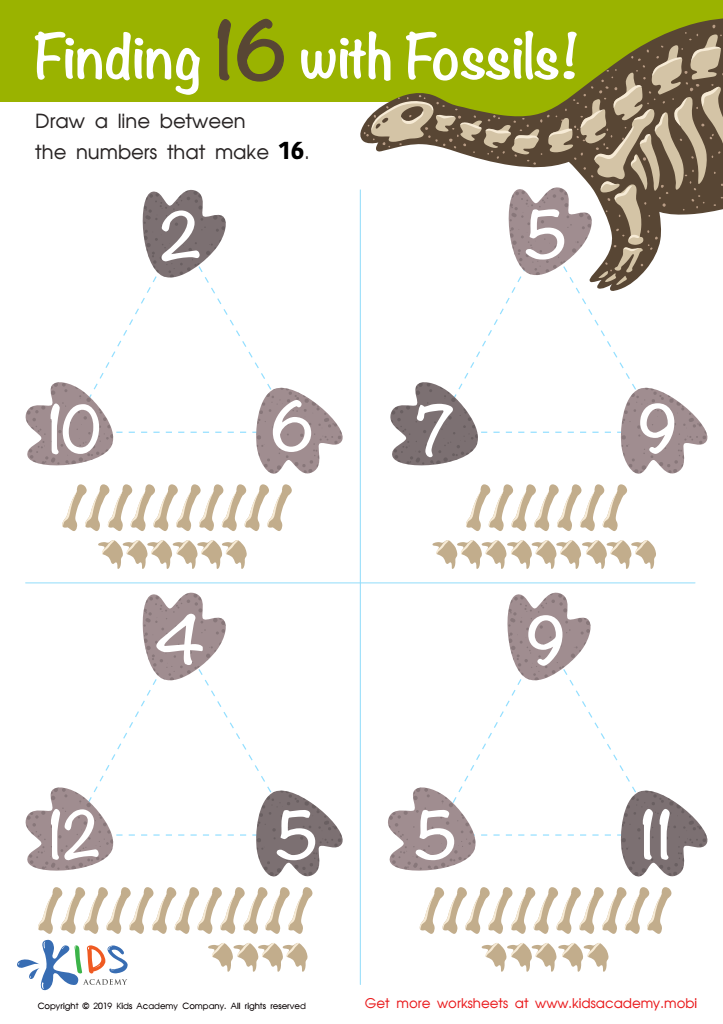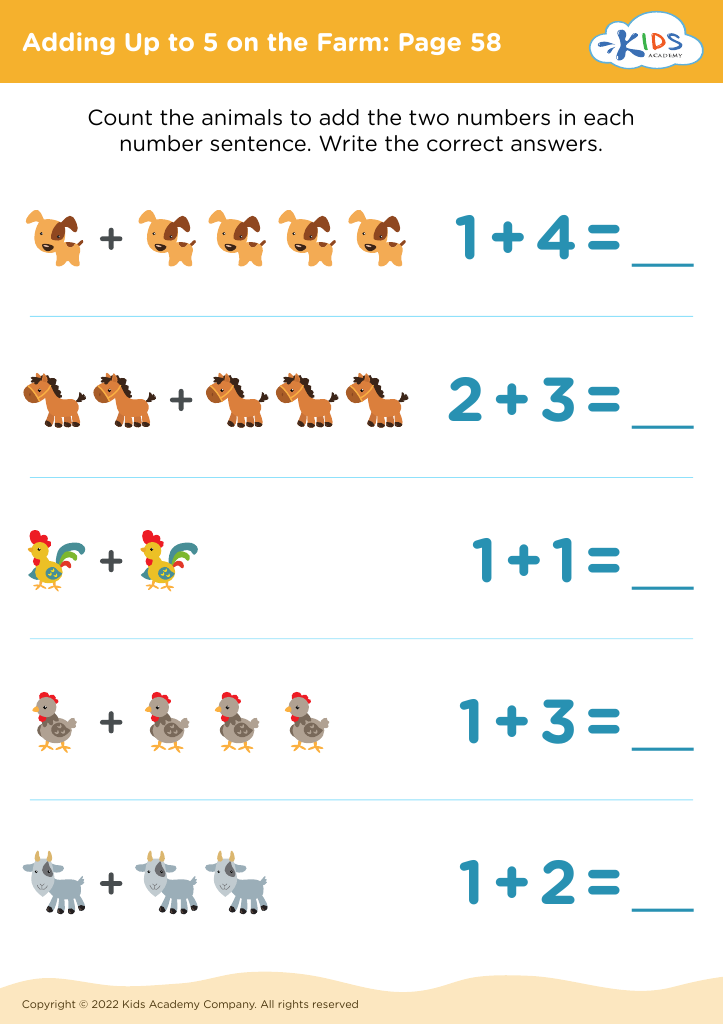Observation skills Math Worksheets for Ages 4-5
3 filtered results
-
From - To
Enhance your child's learning journey with our Observation Skills Math Worksheets for ages 4-5! These engaging worksheets are designed to develop critical observation skills through fun and interactive activities. Perfect for young learners, each worksheet encourages children to identify patterns, categorize items, and recognize shapes while fostering early math skills. Our carefully crafted exercises not only support cognitive development but also boost concentration and attention to detail. With vibrant illustrations and age-appropriate challenges, these worksheets create an enjoyable educational experience for your little ones. Explore our resources and watch your child flourish in math while sharpening their observational abilities!


The 5 Sense Scientist Worksheet


Finding 16 With Fossils Worksheet
Observation skills in early math education are crucial for children aged 4-5 as they fundamentally lay the groundwork for critical thinking and problem-solving abilities. At this stage, children learn best through hands-on experiences and exploration. By honing observation skills, young learners enhance their ability to notice patterns, shapes, and numerical quantities in their environment, which inherently builds a solid understanding of mathematical concepts.
Parents and teachers should prioritize these skills because they facilitate cognitive development in a playful context. Observational activities encourage children to ask questions and engage in dialogue, fostering their curiosity about the world around them. This engagement leads to deeper learning as children express their thoughts and make connections between various concepts.
Moreover, strong observation skills help identify the visual representation of mathematical ideas beyond memory-based learning. By recognizing patterns and relationships, children can develop foundational skills such as counting, sorting, and measuring more intuitively.
Ultimately, cultivating observation skills in early math not only supports academic success but also helps instill a lifelong love for learning. By emphasizing these skills in early education, parents and teachers can empower children with the confidence and curiosity they need to navigate math successfully as they progress in their education.
 Assign to My Students
Assign to My Students










.jpg)










